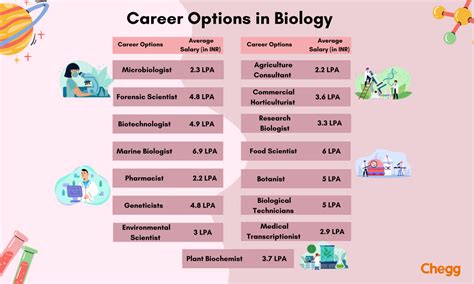Introduction

Embarking on a journey in biology opens a world of captivating career possibilities that leverage scientific knowledge and practical skills. With a median annual salary of $85,850 according to the U.S. Bureau of Labor Statistics, biology majors enjoy a promising career outlook and a high earning potential.
This comprehensive guide unveils the diverse array of job opportunities available to biology majors, empowering them to make informed decisions about their professional paths.
Key Skills and Competencies
Biology majors develop a solid foundation in scientific principles, analytical thinking, and technical proficiency, equipping them with transferable skills highly sought after in various industries. These skills include:
- Experimental design and data analysis
- Critical thinking and problem-solving
- Laboratory techniques and equipment handling
- Scientific writing and communication
- Understanding of biological principles
Career Opportunities
The field of biology offers a multitude of career paths, each catering to specific interests and career goals. Some of the popular options include:
1. Biomedical Research
- Research Scientist: Conduct studies on human health, diseases, and treatments.
- Laboratory Technician: Support research projects by preparing samples, conducting experiments, and analyzing data.
2. Biotechnology
- Biotechnologist: Develop and improve biological systems for medical, agricultural, and industrial applications.
- Quality Control Analyst: Ensure the safety and quality of biological products.
3. Environmental Science
- Environmental Consultant: Provide expert advice on environmental regulations, impact assessments, and sustainability strategies.
- Conservation Biologist: Study and protect endangered species and ecosystems.
4. Education and Outreach
- Science Teacher: Inspire students with the wonders of biology.
- Science Communicator: Translate scientific knowledge into accessible formats for public understanding.
5. Medical and Healthcare
- Medical Laboratory Scientist: Analyze clinical specimens to support patient diagnosis and treatment.
- Biomedical Engineer: Design and develop medical devices and technologies.
6. Agriculture and Food Science
- Agronomist: Research and improve agricultural practices for crop growth and sustainability.
- Food Scientist: Develop and ensure the safety and quality of food products.
Emerging Applications and Future Trends
Advances in technology and interdisciplinary research are creating new applications for biological knowledge, leading to the emergence of novel career paths.
Synthetic Biology: This field involves engineering biological systems from scratch to create innovative biomaterials, biofuels, and therapeutics.
Bioinformatics: The intersection of biology, computer science, and statistics enables researchers to analyze vast amounts of biological data and identify patterns.
Personalized Medicine: Biology plays a crucial role in tailoring medical treatments to individual patients based on their genetic makeup and health profile.
Useful Tables for Biology Majors
| Characteristic | Table 1: Popular Career Options for Biology Majors |
|---|---|
| Job Title | Median Salary |
| Research Scientist | $93,590 |
| Biotechnologist | $91,250 |
| Environmental Scientist | $95,570 |
| Science Teacher | $61,050 |
| Medical Laboratory Scientist | $75,460 |
| Industry | Table 2: Top Industries for Biology Majors |
|---|---|
| Healthcare and Medical Research | 30% |
| Biotechnology and Pharmaceuticals | 22% |
| Agriculture and Environmental Science | 14% |
| Education | 10% |
| Food Science and Nutrition | 8% |
| Salary Range | Table 3: Salary Ranges for Biology Majors |
|---|---|
| Entry-Level | $45,000 – $60,000 |
| Mid-Level | $60,000 – $85,000 |
| Senior-Level | $85,000 – $120,000 |
| Management | $120,000+ |
| Degree | Table 4: Educational Requirements for Biology Majors |
|---|---|
| Bachelor’s Degree | Required for most entry-level positions |
| Master’s Degree | Preferred for research, management, and technical roles |
| Doctorate (Ph.D.) | Required for advanced research and academic positions |
Conclusion
Biology majors possess a versatile skill set and a vast array of career options to choose from. By carefully considering their interests, career goals, and emerging trends, they can embark on a fulfilling and rewarding career in the field. With a strong educational foundation and a commitment to ongoing learning, biology majors are well-equipped to make a meaningful impact on society and advance the frontiers of scientific knowledge.
